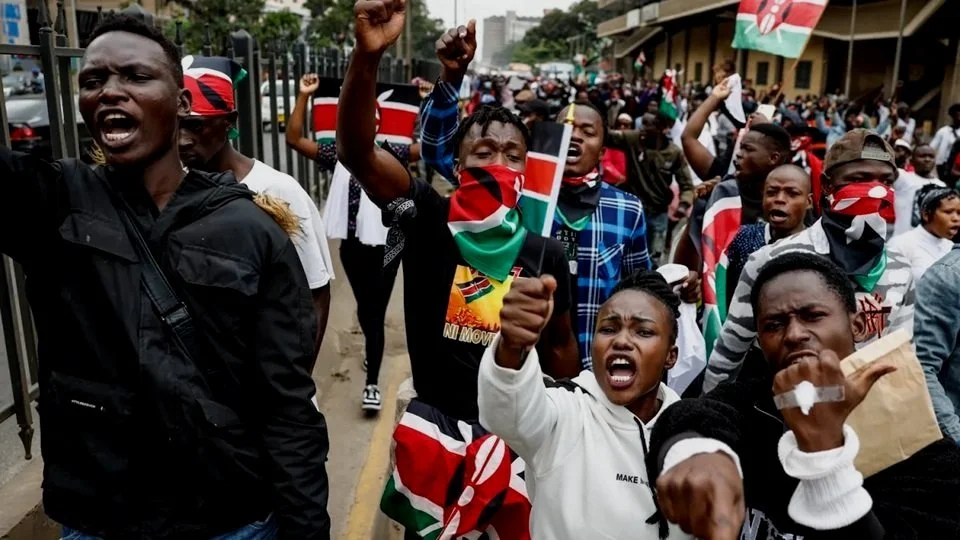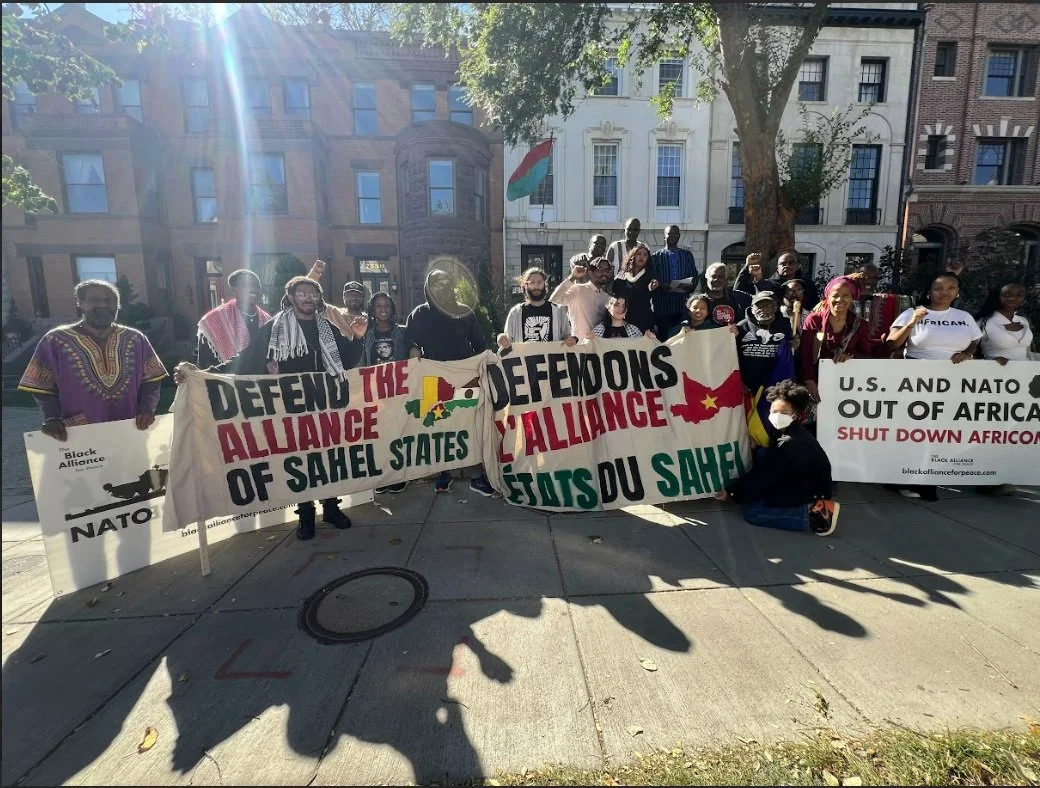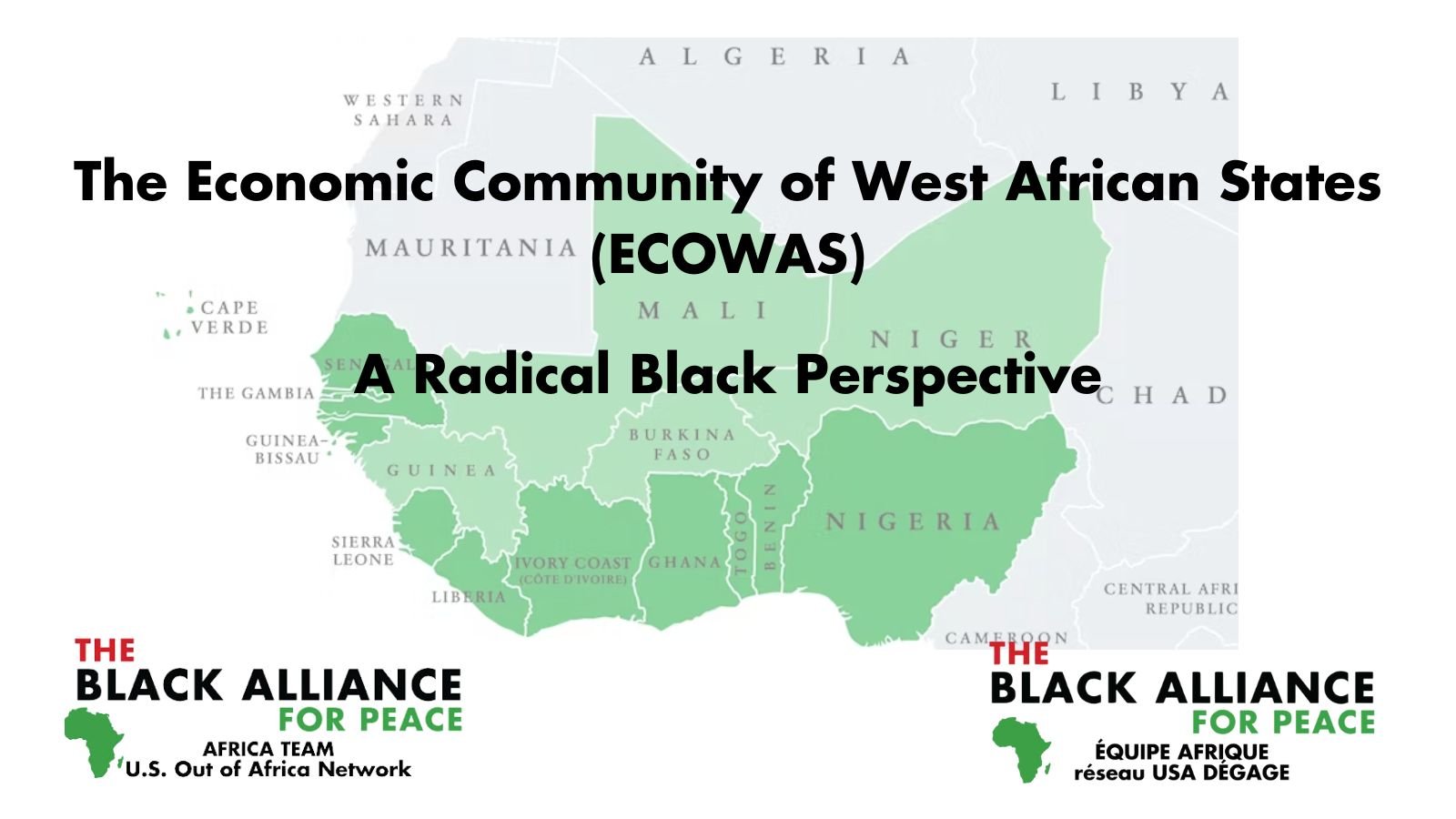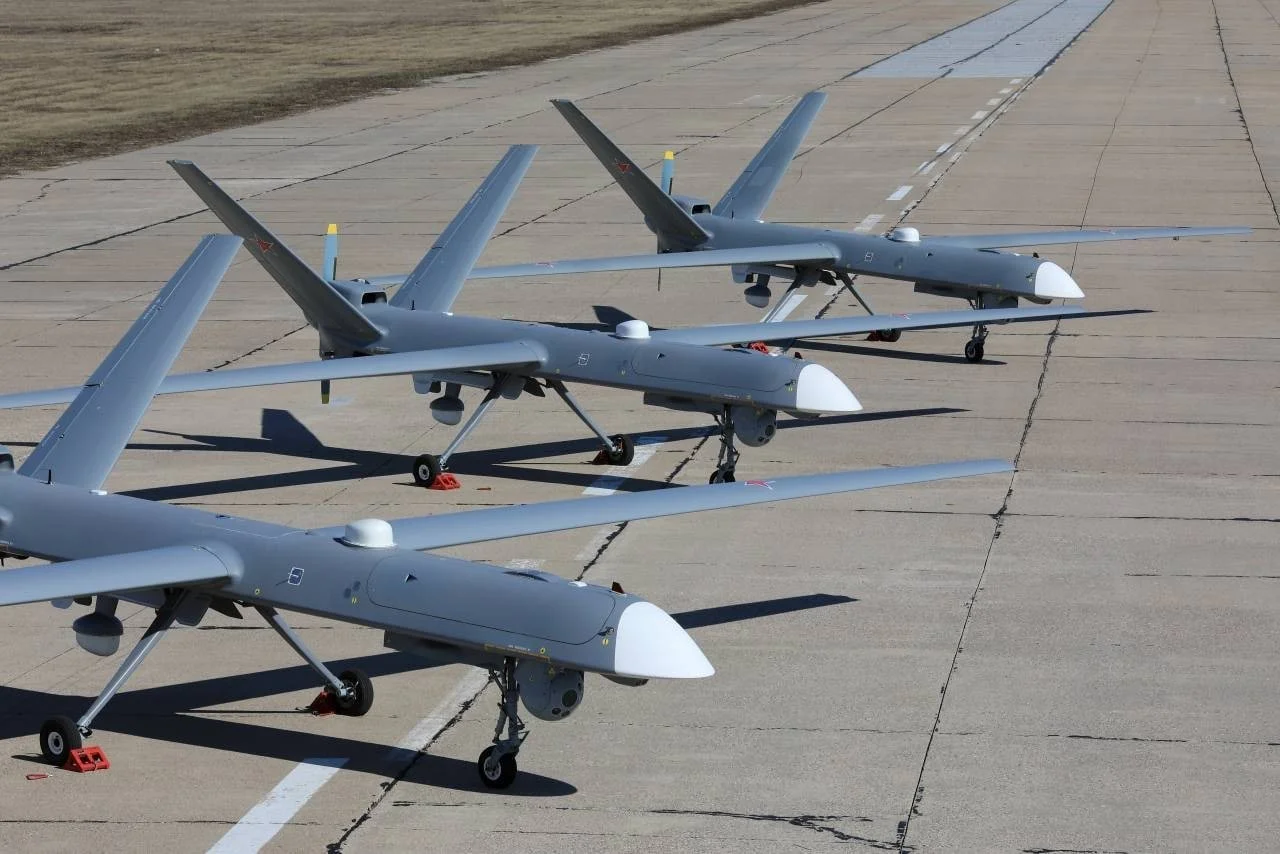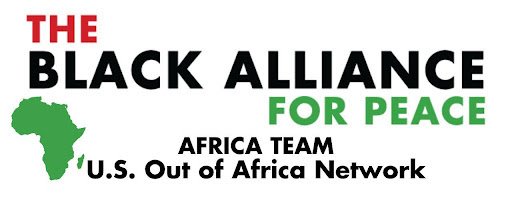Exporting Repression: Haitians And Kenyans Are Both Fighting Neo-colonial Representatives of U.S.-led Imperialism
Since 2021, the Black Alliance for Peace Haiti/Americas Team has tracked the deepening crisis of imperialism in Haiti, in particular how imperialist forces and neocolonial puppets have worked to suppress and eliminate the organizing of popular movements and the will of the Haitian people. Over the last four years, this crisis has impacted nations around the globe, in particular Kenya.
This summer marks the one-year anniversary of Kenya’s youth-led uprising against the IMF-backed Finance Bill of 2024. Instead of reckoning with the demands of a generation that has endured skyrocketing inflation, police violence, and mass unemployment, President William Ruto has once again unleashed the full force of state repression. Live ammunition, abductions, and curfews have become routine tactics to crush dissent and left at least 50 protesters dead. As BAP’s Africa Team stated last week, these protests are not isolated and reflect a broader generational rejection of IMF-dictated austerity and repressive consolidation by neocolonial governance.
Thousands of miles away in revolutionary Haiti, Kenyan boots are still on the ground. Following the July 2021 assassination of Jovenel Moïise and installment of Ariel Henry, by the Core Group, troops were dispatched under the so-called Multinational Security Support (MSS) mission, which was renewed in October 2024 despite consistent opposition from civil society and popular movements throughout the Americas. These same violent police were sent to “restore order” in a country ravaged by decades of foreign intervention and neocolonial policies. The order that these forces represent is not one of peace, but of the continuation of imperialist domination and neocolonial subversion. The same regime that brutalizes its youth domestically claims to bring “security” to Haitians abroad. These militarized responses do not provide security for the majority of people in Haiti or Kenya, but for the multinational corporations, imperialist bureaucrats, and neocolonial oligarchs and elites.
Neocolonialism in Haiti: Outsourcing Imperialist Occupation
The MSS has failed to curb violence, but not because it lacks force, but because it was never designed to resolve the root causes. Since the Kenya-led MSS mission was formally launched in 2024 under U.S. sponsorship, it has remained strategically vague, militarily ineffective, and politically illegitimate. As grassroots activists have recently shared, the MSS and their masters in the U.S. Southern Command (SOUTHCOMSouthcom) have not been publicizing their activities because the paramilitary armed groups they were dispatched to combat have only continued to gain ground in and outside of Port-au-Prince. This includes the towns of La Chapelle, Artibonite, and Lascaobas in the Centre department
This is not because the intervention isn’t strong enough, it is by design. The MSS’s presence functions as a placeholder for deeper U.S. reoccupation and a justification for the continual militarization of Haiti’s political crisis, which has been, and remains, a crisis of imperialism. The failures of the MSS showcase, not just the failure of foreign intervention to resolve the crisis in Haiti, but exposes these interventions as tools to keep Haiti trapped under a neocolonial subjugation.
Life, Culture, and Sovereignty Under Siege
Earlier this week, paramilitary armed groups set arson to Hotel Oloffson, a historic site in Port-au-Prince known for its significance to Haitian art, journalism, refuge, and resistance. This was not just an attack on infrastructure, but an assault on the cultural memory and political soul of Haiti. At the same time, government forces under the illegitimate Transitional Presidential Council (CPT) increase ‘kamikaze drone’ attacks that have already resulted in the murder of at least 300 people in poor and working class neighborhoods, under the justification of striking at “terrorist gangs”. Now with the agreement between the CPT and Erik Prince’s U.S.-backed mercenaries, the militarization and violence only promises to deepen. As violence spreads beyond Port-au-Prince, both lives and symbolic spaces of Haitian resistance are being engulfed in the imperialist-fueled violence.
However, this month has also brought signs of resistance and solidarity. On July 13, displaced residents from the neighborhood of Solino in Port-au-Prince mobilized in the streets to protest for their survival and against the oligarchs and neocolonial state that are destroying their lives and livelihoods. On July 6, the Bolivarian Alliance for the Peoples of Our America (ALBA) sent a delegation to Haiti in a clear rejection of U.S.-backed intervention. The delegation, comprising representatives from Venezuela, Brazil, and Argentina, denounced foreign interventionism and called for “respect for Haiti’s sovereignty, urging solutions based on mutual cooperation, not military occupation…Behind the violence, corruption, and food shortages, is the same United States imperialism that oppresses all the peoples of the Global South.”
In stark contrast to Kenya’s role as a proxy enforcer for the U.S.-led Core Group politically and SOUTHCOMSouthcom militarily, ALBA’s statement reframes possible solutions to the crisis in Haiti through regional solidarity, not Western mandates. This focus on solidarity is a core function of the development of the Campaign for a Zone of Peace in Our Americas, which has as a primary objective ending military intervention into Haiti and supporting peoples-centered movements that emphasize self-determination and dignity for the Haitian masses.
As anti-imperialists in solidarity with the masses of Haitians and Kenyans, we must remain clear. Whether in Nairobi or Port-au-Prince, the playbook is the same: suppress resistance at home, legitimize occupation abroad. But today’s African youth are not confused. They see the global connections. The same forces imposing debt and repression in Kenya are funding foreign domination in Haiti. The violence is not an accident, it is the enforcement arm of a neocolonial system. As the MSS flounders in Haiti and Kenyan youth continue to rise against domestic repression, the crumbling empire behind both is in much clearer focus.
The Black Alliance for Peace stands in solidarity with those surviving and resisting both of the comprador regimes in Kenya and Haiti as they collaborate with U.S.-led Western imperialism to oppress and exploit Africans in both nations.
Hands Off Haiti!
U.S. Out of Africa!
Make Our Americas a Zone of Peace!
References:
Fighting Words, “Kenyan Police Attack Youth-Led Demonstrations Against Brutality”
Haitian Times, “Port-au-Prince mourns Hotel Oloffson, LGBTQ+ refuge and majestic landmark, lost to criminal fire”
HaitiLibre, “Haiti - Politic : ALBA stands in solidarity with Haiti faced with foreign interference”:
TeleSUR English-Haiti, “Militant members of ALBA met with Haitian organizations to reaffirm solidarity”
Al Jazeera, ‘Kenya is not asleep anymore’: Why young protesters are not backing down
Banner photo: Kenya and Haiti sign agreement on the deployment of 1,000 police officers to the Multi-National Security Support Mission in Haiti
Exportando represión: Haitianos y kenianos luchan contra los representantes neocoloniales del imperialismo liderado por EE.UU.
Desde 2021, el equipo Haití/Américas de la Alianza Negra por la Paz ha documentado la profundización de la crisis del imperialismo en Haití, en particular cómo las fuerzas imperialistas y sus títeres neocoloniales han trabajado para suprimir y eliminar la organización de los movimientos populares y la voluntad del pueblo haitiano. En los últimos cuatro años, esta crisis ha impactado a naciones de todo el mundo, especialmente a Kenia.
Este verano se cumple un año del levantamiento liderado por la juventud keniana contra la Ley Financiera de 2024, respaldada por el FMI. En lugar de atender las demandas de una generación que ha sufrido una inflación descontrolada, violencia policial y desempleo masivo, el presidente William Ruto ha desatado una vez más toda la fuerza represiva del Estado. Balas reales, secuestros y toques de queda se han convertido en tácticas rutinarias para aplastar la disidencia, dejando al menos 50 manifestantes muertos. Como señaló el equipo de África de BAP la semana pasada, estas protestas no son aisladas, sino que reflejan un rechazo generacional más amplio a la austeridad impuesta por el FMI y a la consolidación represiva de un gobierno neocolonial.
A millas de distancia, en Haití revolucionaria, las botas kenianas siguen pisando su suelo. Tras el asesinato de Jovenel Moïse en julio de 2021 y la imposición de Ariel Henry por parte del Core Group, tropas fueron desplegadas bajo la misión denominada Apoyo Multinacional de Seguridad (MSS), renovada en octubre de 2024 pese a la oposición constante de la sociedad civil y los movimientos populares en las Américas. Los mismos policías violentos que reprimen en Kenia fueron enviados a "restablecer el orden" en un país devastado por décadas de intervención extranjera y políticas neocoloniales.
El "orden" que representan estas fuerzas no es el de la paz, sino el de la continuidad de la dominación imperialista y la subversión neocolonial. El mismo régimen que brutaliza a su juventud en casa ahora pretende llevar "seguridad" a los haitianos en el extranjero. Estas respuestas militarizadas no protegen a la mayoría del pueblo en Haití o Kenia, sino a las corporaciones multinacionales, los burócratas imperialistas y las oligarquías y élites neocoloniales.
Neocolonialismo en Haití: La externalización de la ocupación imperialista
La MSS no ha logrado frenar la violencia, pero no por falta de fuerza, sino porque nunca fue diseñada para resolver las causas profundas del conflicto. Desde que la misión liderada por Kenia se lanzó formalmente en 2024 bajo el patrocinio de EE.UU., ha sido estratégicamente ambigua, militarmente ineficaz y políticamente ilegítima.
Como han denunciado recientemente activistas de base, la MSS y sus amos del Comando Sur de EE.UU. (Southcom) ocultan sus actividades, pues los grupos paramilitares que supuestamente debían combatir no han hecho más que expandir su control dentro y fuera de Puerto Príncipe. Esto incluye localidades como La Chapelle, Artibonite y Lascaobas, en el departamento del Centro.
Esto no se debe a que la intervención sea "débil", sino que está planeado así. La presencia de la MSS funciona como un escalón para una reocupación estadounidense más profunda y como excusa para militarizar aún más la crisis política de Haití, que siempre ha sido —y sigue siendo— una crisis del imperialismo.
El fracaso de la MSS no solo demuestra la inutilidad de la intervención extranjera para resolver la crisis haitiana, sino que revela su verdadero propósito: mantener a Haití bajo un yugo neocolonial.
Vida, cultura y soberanía bajo asedio
A principios de esta semana, grupos armados paramilitares incendiaron el Hotel Oloffson, un sitio histórico en Puerto Príncipe conocido por su importancia para el arte, el periodismo, el refugio y la resistencia haitianos. Esto no fue solo un ataque a la infraestructura, sino un asalto a la memoria cultural y al alma política de Haití. Al mismo tiempo, las fuerzas gubernamentales bajo el ilegítimo Consejo Presidencial de Transición (CPT) intensifican los ataques con "drones kamikaze" que ya han resultado en el asesinato de al menos 300 personas en barrios pobres y de clase trabajadora, bajo la justificación de atacar a "pandillas terroristas". Ahora, con el acuerdo entre el CPT y los mercenarios respaldados por Estados Unidos de Erik Prince, la militarización y la violencia solo prometen profundizarse. A medida que la violencia se extiende más allá de Puerto Príncipe, tanto vidas como espacios simbólicos de resistencia haitiana están siendo consumidos por la violencia alimentada por el imperialismo.
Sin embargo, este mes también ha traído signos de resistencia y solidaridad. El 13 de julio, residentes desplazados del barrio de Solino en Puerto Príncipe se movilizaron en las calles para protestar por su supervivencia y contra los oligarcas y el estado neocolonial que están destruyendo sus vidas y medios de subsistencia. El 6 de julio, la Alianza Bolivariana para los Pueblos de Nuestra América (ALBA) envió una delegación a Haití en un claro rechazo a la intervención respaldada por Estados Unidos. La delegación, compuesta por representantes de Venezuela, Brasil y Argentina, denunció el intervencionismo extranjero y pidió "respeto a la soberanía de Haití, instando a soluciones basadas en la cooperación mutua, no en la ocupación militar... Detrás de la violencia, la corrupción y la escasez de alimentos, está el mismo imperialismo de Estados Unidos que oprime a todos los pueblos del Sur Global".
En marcado contraste con el papel de Kenia como ejecutor proxy del Core Group liderado por Estados Unidos políticamente y del Comando Sur militarmente, la declaración de ALBA replantea posibles soluciones a la crisis en Haití a través de la solidaridad regional, no de mandatos occidentales. Este enfoque en la solidaridad es una función central del desarrollo de la Campaña por una Zona de Paz en Nuestra América, que tiene como objetivo principal terminar con la intervención militar en Haití y apoyar movimientos centrados en los pueblos que enfatizan la autodeterminación y la dignidad para las masas haitianas.
Como antiimperialistas en solidaridad con las masas de haitianos y kenianos, debemos mantenernos claros. Ya sea en Nairobi o en Puerto Príncipe, el manual es el mismo: suprimir la resistencia en casa, legitimar la ocupación en el extranjero. Pero la juventud africana de hoy no está confundida. Ellos ven las conexiones globales. Las mismas fuerzas que imponen deuda y represión en Kenia están financiando la dominación extranjera en Haití. La violencia no es un accidente, es el brazo ejecutor de un sistema neocolonial. Mientras la MSS fracasa en Haití y la juventud keniana sigue alzándose contra la represión doméstica, el imperio en decadencia detrás de ambos está mucho más claro.
La Alianza Negra por la Paz se solidariza con aquellos que sobreviven y resisten a ambos regímenes compradores en Kenia y Haití mientras colaboran con el imperialismo occidental liderado por Estados Unidos para oprimir y explotar a los africanos en ambas naciones.
¡Fuera las manos de Haití!
¡EE.UU. fuera de África!
¡Hagamos de Nuestra América una Zona de Paz!
References:
Fighting Words, “Kenyan Police Attack Youth-Led Demonstrations Against Brutality”
Haitian Times, “Port-au-Prince mourns Hotel Oloffson, LGBTQ+ refuge and majestic landmark, lost to criminal fire”
HaitiLibre, “Haiti - Politic : ALBA stands in solidarity with Haiti faced with foreign interference”:
TeleSUR English-Haiti, “Militant members of ALBA met with Haitian organizations to reaffirm solidarity”
Al Jazeera, ‘Kenya is not asleep anymore’: Why young protesters are not backing down



